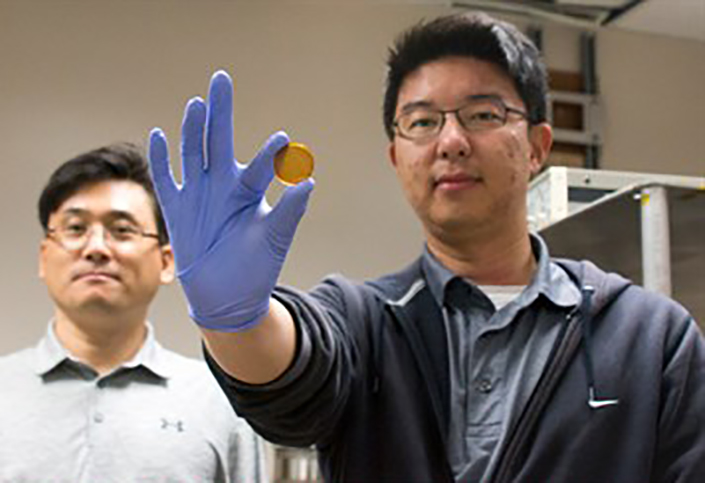Innovative supercapacitor converts thermal energy into electrical energy

Image: Dwight Look College of Engineering
A researcher and his graduate team in the Dwight Look College of Engineering have developed a supercapacitor that can charge by converting thermal energy, including human body heat, to electrical energy.
“This is the first time that it has been discovered that a solid-state polymer electrolyte can produce large thermally induced voltage,” said Choongho Yu, Gulf Oil/Thomas A. Dietz Career Development Professor II in the Department of Mechanical Engineering. “The voltage can then be used to initiate an electrochemical reaction in electrodes for charging.”
The Thermally Chargeable Solid-state Supercapacitor works by converting thermal energy into electrical energy and simultaneously storing it. Any objects that disperse heat can be used to charge the capacitor without external electrical power sources.
The supercapacitor can be used as a power supply for wearable electronics, and can be integrated into wireless data transmission systems to operate IoT (Internet of Things) sensors.
The research was recently published in the journal Advanced Energy Materials.

